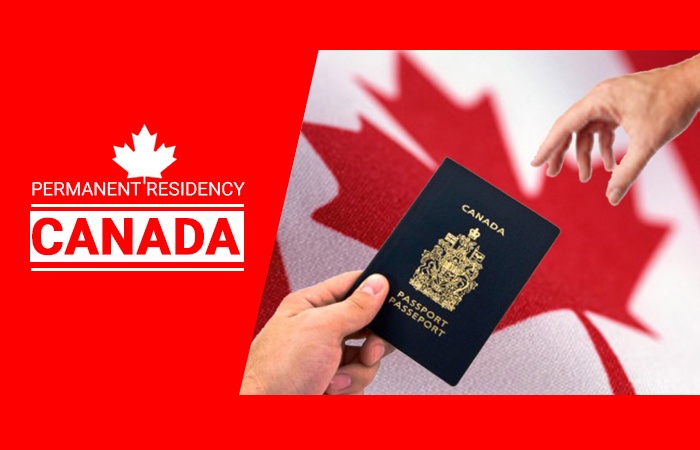The absence of boundaries in matters of love prompts several couples to contemplate relocating to a foreign nation with the aim of establishing a shared existence. Canada is a highly sought-after location for couples desiring to reconcile or embark on their marital adventure together. The Government of Canada has a spousal sponsorship program, which enables Canadian citizens and permanent residents to act as sponsors for their foreign spouses or partners, facilitating their immigration to Canada. This article aims to examine the procedure of immigrating to Canada via marriage, the qualifications required, and the sequential stages of the application for spousal sponsorship.
An Overview of Spousal Sponsorship
The inclusion of spousal sponsorship inside Canada’s Family Class sponsorship program serves to expedite the process of reuniting families within the nation. The program facilitates the sponsorship of spouses or partners for Canadian permanent residency by Canadian citizens and permanent residents who meet the minimum age requirement of 18 years. The primary objective of the Canadian government’s spousal sponsorship program is to facilitate family reunification and promote the creation of secure and affectionate households.
Eligibility Criteria for Sponsor and Sponsored Spouse/Partner
The present study aims to elucidate the eligibility criteria pertaining to sponsors and sponsored spouses/partners within the context of immigration policies.
1. Eligibility of Sponsors
In order to meet the requirements for sponsoring a spouse or partner for immigration to Canada, the sponsor must:
- To be eligible, individuals must possess Canadian citizenship or hold permanent residency status in Canada.
- The minimum age requirement is 18 years.
- The individual must not have any outstanding obligations or financial commitments relating to sponsorship or immigration that have not been fulfilled.
- Demonstrate the ability to furnish the requisite financial assistance for the sponsored spouse or partner for a designated duration.
2. Eligibility Criteria for Sponsored Spouse/Partner
The individual who is being sponsored is required to:
- It is a requirement to have a formal marriage with the sponsor, noting that same-sex weddings are acknowledged in Canada.
- The individual must be engaged in a cohabiting partnership with the sponsor, adhering to the common-law criteria of residing together continuously for a minimum duration of 12 months.
- The applicant must be in a conjugal relationship with the sponsor, wherever they are unable to marry or cohabit owing to extraordinary circumstances.
- The individual must be of legal adult age, which is a minimum of 18 years old.
- The sponsor should not have a close familial relationship with the individual, such as being a parent, grandparent, child, or sibling.
It is imperative to acknowledge that polygamous marriages do not meet the criteria for spousal sponsorship in Canada.
The Application Process
1. The initial step in the process is collecting the necessary documents.
The spousal sponsorship application necessitates the submission of a range of documentation by both the sponsor and the sponsored spouse or partner. The aforementioned documents encompass:
- Verification of identification (for both the sponsor and the sponsored spouse or partner).
- A marriage certificate or documentation substantiating a common-law relationship, such as a combined lease or utility bills, should be provided as evidence.
- Documentation substantiating the termination of prior marriages or partnerships (such as divorce decrees or death certificates).
- Police clearance certificates are required from all countries in which the individual has resided for a period of six months or more since reaching the age of 18.
- The medical examination results for the sponsored spouse or partner are required.
- Verification of the sponsor’s Canadian citizenship or permanent residence status.
2. Submission of application.
The individual responsible for the submission of the spousal sponsorship application to Immigration, Refugees, and Citizenship Canada (IRCC) is required to fulfill this obligation. This process include completing the necessary documentation and remitting the prescribed administrative charges. The submission of the application can be done either through an online platform or by traditional mail, contingent upon the specific conditions.
3. Application processing and decision-making.
Upon submission of the application, the Immigration, Refugees and Citizenship Canada (IRCC) will proceed with a comprehensive examination of the provided papers to ascertain the eligibility of both the sponsor and the sponsored spouse or partner. The aforementioned procedure encompasses background checks, medical evaluations, and, if considered required, interviews.
4. Conditional Permanent Residence (if applicable)
Conditional permanent residency will be given to the sponsored spouse or partner if they have been in a relationship with the sponsor for a duration of two years or less and do not share any children with the sponsor. In order to eliminate the imposed requirements, it is necessary for both individuals in the pair to jointly submit an application to the Immigration, Refugees and Citizenship Canada (IRCC) with the purpose of substantiating the authenticity and continuity of their relationship.
5. Permanent Residence
The concept of permanent residence refers to an individual’s legal status in a certain country, granting them the right to reside in that country indefinitely.
Upon the approval of the spousal sponsorship application, the sponsored spouse or partner will be bestowed with Canadian permanent residency. This immigration status grants individuals the opportunity to reside and engage in employment activities within Canada on a permanent basis, while also providing them with access to a wide range of social benefits.
6. Consider making an appeal or reapplying, if deemed essential.
In the event of a denial of the application, the sponsor and the sponsored spouse or partner has the opportunity to either initiate an appeal against the decision or submit a fresh application supplemented with extra supporting documentation, should any inadequacies be identified in the original submission.
There are several crucial factors that need to be taken into account.
1. The Duration of Processing
The processing of spousal sponsorship applications can be a time-consuming procedure, typically spanning several months. The duration of this process is subject to variation based on factors such as the sponsored spouse or partner’s place of origin and the amount of applications received by the Immigration, Refugees and Citizenship Canada (IRCC) department.
2. The Concept of Conditional Permanent Residence
It is imperative for couples who have been granted conditional permanent residency to submit an application for the removal of those conditions prior to the conclusion of the two-year timeframe.
3. Establishing the Authenticity of the Relationship
Demonstrating the authenticity of the connection is a pivotal determinant in the favorable outcome of a spousal sponsorship application. The application is evaluated by the IRCC in order to ascertain that the marriage or partnership is not primarily established for immigration motives.
Conclusion
The option of immigrating to Canada via marriage provides couples with the chance to establish a shared existence inside a nation renowned for its multiculturalism, acceptance, and exceptional standard of living. The process of spousal sponsorship offers an avenue for the reunification of families and the establishment of nurturing households in Canada. By comprehending the established requirements for eligibility and adhering conscientiously to the prescribed procedures for application, couples may effectively traverse the immigration process and begin a new phase of their life jointly within the borders of Canada. The spousal sponsorship program provides individuals with the opportunity to fulfill their aspirations, such as establishing a family, pursuing professional prospects, or enhancing their standard of living. By facilitating the immigration process for spouses, this program enables individuals to transform their aspirations into tangible realities, so establishing a solid groundwork for a promising future in Canada.






